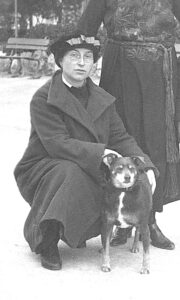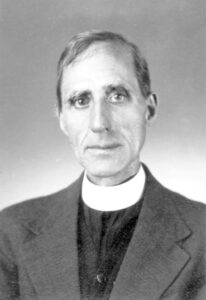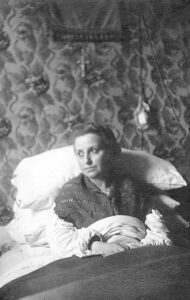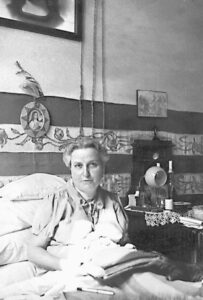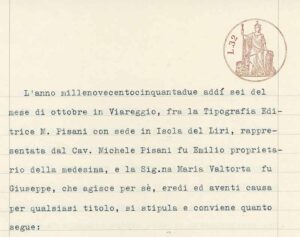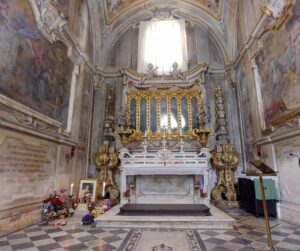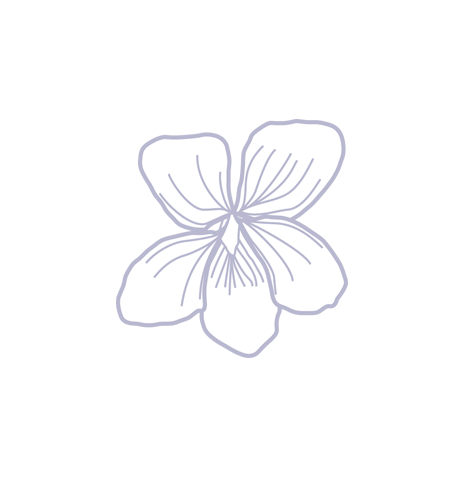The violet of God
At the time of year I was born the hawthorn sprinkles the previously bare hedges with living snow, and its florets, white as a feather falling from a dove in flight, caress the red-brown thorns on its branches. In certain Italian towns, they call wild hawthorn Spina Christi and say that the Redeemer’s crown of thorns was made of its branches, which, though a torment for the Savior’s flesh, protect the nests becoming full of murmurs and love once again.
At the foot of the hawthorn, a Lenten flower in outward garb and Christian in humility, the violet meekly exudes its perfume… A perfume more than a flower—a faint and yet penetrating scent, a humble and yet tenacious flower content with everything in order to live and blossom.
I would like to designate this life with the name of one of these two flowers, particularly the violet, which lives in the shade but knows that the sun is shining upon it to provide life and warmth. It knows, though it does not see the sun, and casts its scent, outbreathing its whole self in loving incense to say “thank you.” (Maria Valtorta, Autobiography)

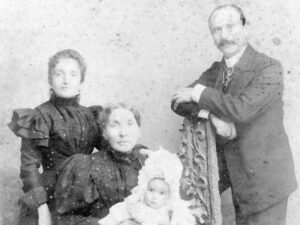
 Having the family to follow the displacements of the Cavalry Regiment, in which her father served as an officer, Maria left Caserta when she was eighteen months old, and lived her early childhood in Faenza, Romagna, where she began to attend schools, with great success, in Milan and then to Voghera, where she made his first communion.
Having the family to follow the displacements of the Cavalry Regiment, in which her father served as an officer, Maria left Caserta when she was eighteen months old, and lived her early childhood in Faenza, Romagna, where she began to attend schools, with great success, in Milan and then to Voghera, where she made his first communion.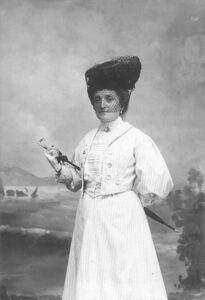 From her mother, Iside
From her mother, Iside 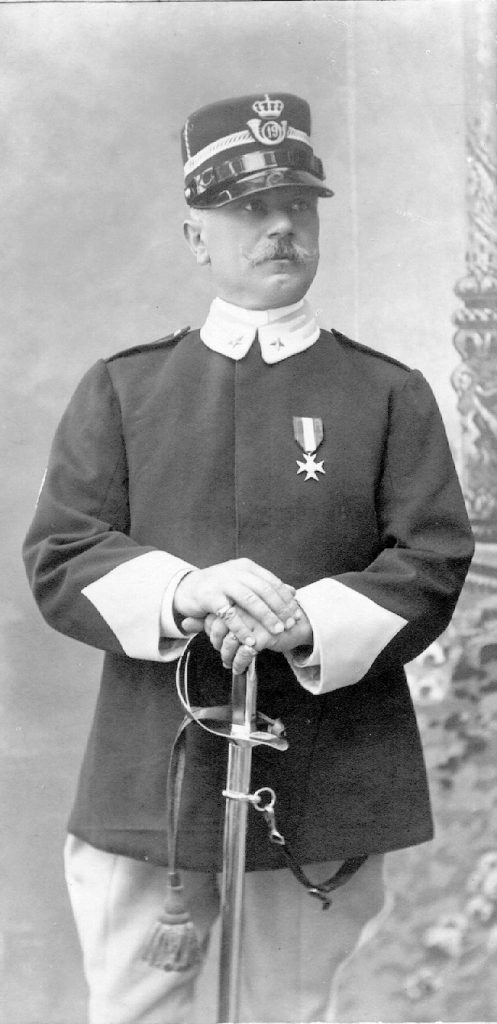
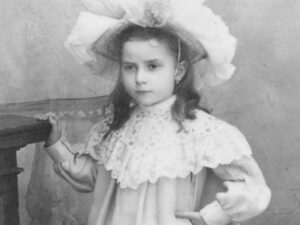 Intelligent and strong-willed, of a passionate nature, Mary nourished the legitimate aspirations of every woman, but in her soul “the eagerness to console Jesus by becoming like Him, in the pain voluntarily suffered for love” never died away. As a child, in fact, while contemplating the statue of Christ taken down from the cross, she felt compassionate for Him as she recognised in His extreme sacrifice, the deep love for humanity.
Intelligent and strong-willed, of a passionate nature, Mary nourished the legitimate aspirations of every woman, but in her soul “the eagerness to console Jesus by becoming like Him, in the pain voluntarily suffered for love” never died away. As a child, in fact, while contemplating the statue of Christ taken down from the cross, she felt compassionate for Him as she recognised in His extreme sacrifice, the deep love for humanity.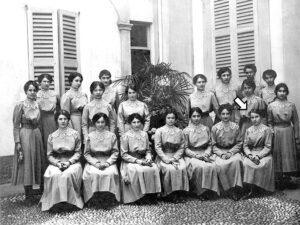 Decisive for her spiritual maturity, and for a planning of future life, were her happy four years as a student in the Bianconi College of Monza, where she found satisfaction in learning culture and religion.
Decisive for her spiritual maturity, and for a planning of future life, were her happy four years as a student in the Bianconi College of Monza, where she found satisfaction in learning culture and religion. Maria Valtorta at the age of 15, in the College’s uniform, where she practiced religion and where her soul turns back to God. Her studies: excellent success in the classic ones and failure in the technical ones imposed by her mother.
Maria Valtorta at the age of 15, in the College’s uniform, where she practiced religion and where her soul turns back to God. Her studies: excellent success in the classic ones and failure in the technical ones imposed by her mother.

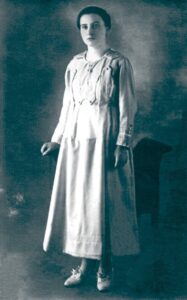
 On September 20, 1920 Maria Valtorta moved with her parents to Reggio Calabria for a long period of holidays, hosted by her cousins who owned two hotels. She will stay there until August 2, 1922. The affection of her relatives, combined with the natural beauty of the place, helped to restore her body and soul. During that vacation she felt new impulses towards a life rooted in Christ; but the return to Florence, in 1922, submerged it in bitter memories.
On September 20, 1920 Maria Valtorta moved with her parents to Reggio Calabria for a long period of holidays, hosted by her cousins who owned two hotels. She will stay there until August 2, 1922. The affection of her relatives, combined with the natural beauty of the place, helped to restore her body and soul. During that vacation she felt new impulses towards a life rooted in Christ; but the return to Florence, in 1922, submerged it in bitter memories.
